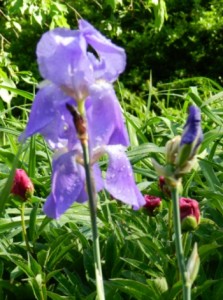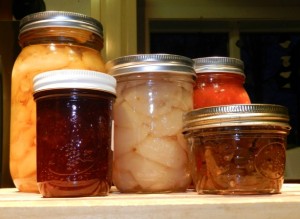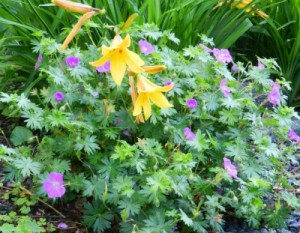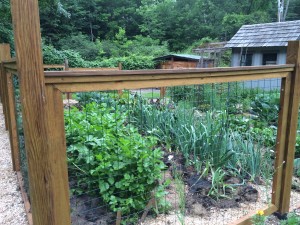
I like to garden, but I love to weed.
For twenty years, I’ve planted vegetables every spring. At first, I did so joyfully, planting peas during snow squalls and burying potato eyes in cold earth. Like any good Vermonter with spring fever, I’ve planted a garden with the sincere intent of putting up pickles, freezing green beans and canning tomatoes against the inevitable winter to come. I have, in fact, grown enough onions to carry us through March.
But I’ve routinely abandoned gardens once the spring fever broke. With the vegetables in the ground, I’ve tied on my hiking boots and climbed mountains for the long view. Back home, I’ve idled away afternoons at the local swimming hole.
As I enjoyed the pleasures of summer, the vegetables—and the weeds—grew, both demanding my attention. I don’t know which I found worse, the cucumbers shouting, “Pick me! Pick me!” or the weeds, whose shaggy presence was an indictment of neglect.
I’m a direct descendent of the Great Depression, raised in an era that believed cleaning my plate would somehow help prevent children from starving in China, so it was the voice of the food ripening on the vine that I heard.

I picked; I pickled; I froze; I canned. I spent some of the hottest and most glorious days of summer chained to the stove. From my kitchen window, I could just make out the weeds obliterating my flower gardens through the canning kettle’s steam.
So this year, I didn’t plant vegetables. I’ve been weeding the flowerbeds instead. Nothing—not the promise of cellared winter squash, frozen berries, or picked beets—none of it is as satisfying to me now as sitting in the dirt, pulling weeds.
After years of neglect, there are plenty of weeds, so just a small effort makes a big difference. One perennial garden has been invaded by a weed that threads its way underground, emerging at intervals. If I tug just right, I can tease a two-foot long strand out of the ground. Following these roots is like shadowing a thought through to its conclusion.
When we had a large vegetable garden, we had many mouths to feed. Now, instead of taking the kids to the swimming hole every afternoon, I make frequent trips to Logan, where they fly off into the world. Back home, sitting in the dirt and pulling at weeds inexplicably helps me feel connected to them in Thailand, Russia and Kenya, all working on farms.

Since weeding gets me away from my office, out of reach of the telephone, email and the business of my freelance life, I also get more mental work done. As I clear the weeds from between the foxglove and Echinacea, I also clear all the chatter inside my skull. Grounded in the warm earth, surrounded by flowers urgently reaching for the sky, everything around me goes quiet except for a voice rising inside me, the voice that says, “I like to garden, but I love to weed.”

This essay, originally titled “Weeding,” aired on Vermont Public Radio on 7/18/2007. It’s still true: I love to weed. What’s changed is that my kids are grown and flown, and I’m back to growing vegetables.
Ha… I did the same thing this year. Finally gave up on growing tomatoes and only planted sunflowers, zinnias and nasturtiums. Feel such a relief… and maybe I’ll enjoy weeding too!
When I started growing vegetables thirty years ago, it was nearly impossible to find organically grown, heirloom, tomatoes. Now, there’s huge variety available at farmer’s markets, farm stands and at the Co-op, so the need to grown everything at home is gone – which is a great relief. That said, I still find a need to grow some of my food. Today, for instance, friends from out of town stopped by for lunch. We collected eggs from the hens, picked spinach in the garden, and ate omelets for lunch – with homemade bread. Not too shabby!
I just love reading your blogs…you are a fantastic writer.
Thanks, Liz. I love having a cheerleader like you! All best, Deb.